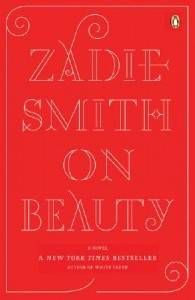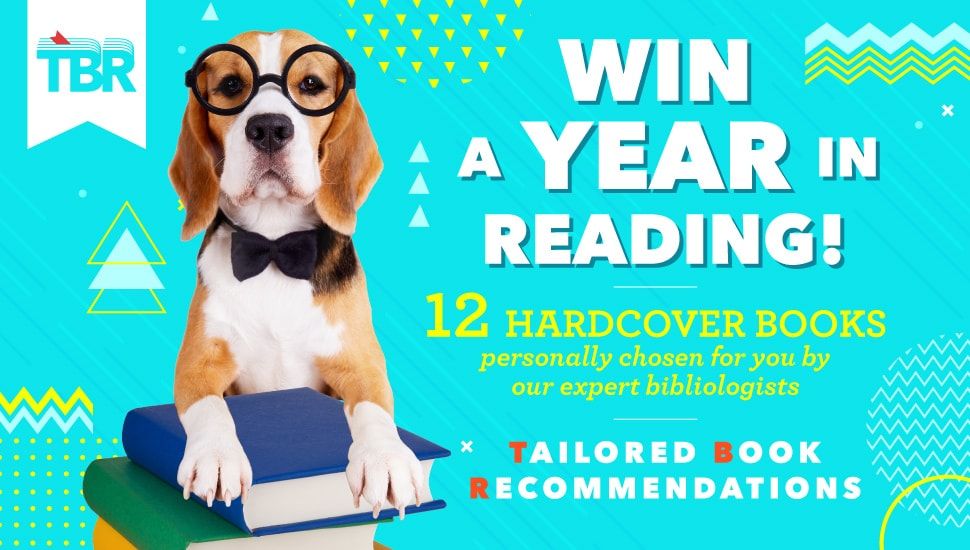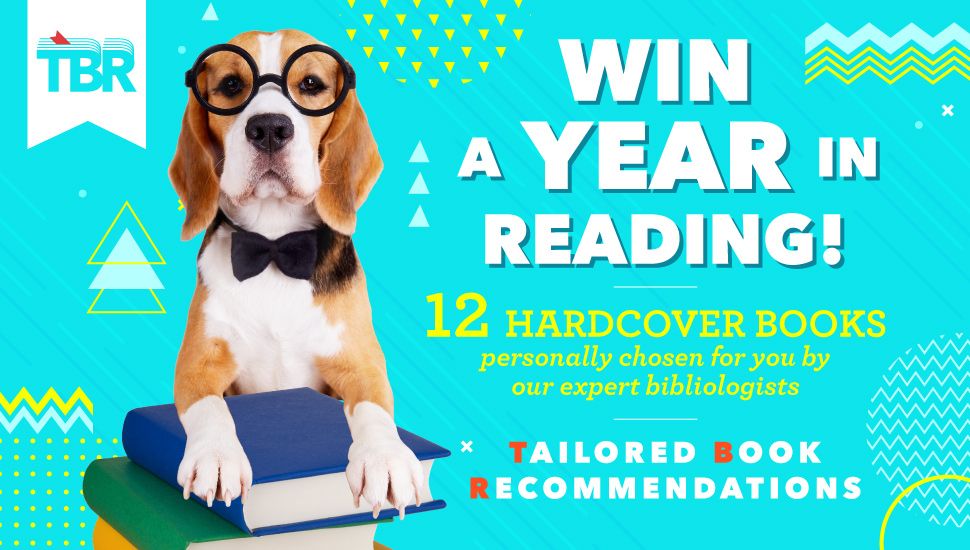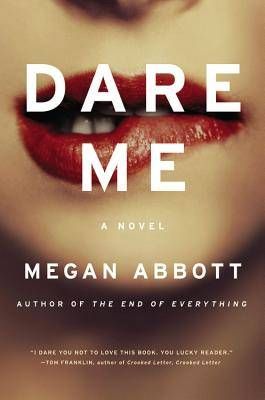
Riot Round Up: The Best Books We Read in August
We asked our contributors to share the best book they read this month. We’ve got fiction and nonfiction, books for kids and books for adults, and some genre for fun. Some are old, some are new, and some aren’t even out yet. Enjoy, and please tell us about the highlight of your reading month in the comments.
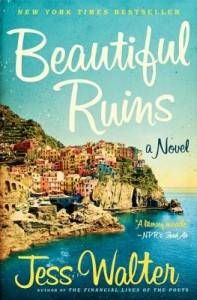 Beautiful Ruins by Jess Walter
Beautiful Ruins by Jess Walter
First, a quote from the novel: “Stories are people. I’m a story, you’re a story … your father is a story. Our stories go in every direction, but sometimes, if we’re lucky, our stories join into one, and for a while, we’re less alone.” How does that grab ya? There’s plenty more where that came from in this fantastic novel about love, regret, and missed opportunities. Walter’s hip, precise prose guides us through 50 years of a story about an American actress who takes refuge in a small Italian village, and the young Italian man who loves her. But is his love requited? Will he ever see her again? And what does any of this have to do with Richard Burton and Liz Taylor? If all this sounds schmaltzy, you’ll have to trust me that it’s not. There’s something for everyone in this fantastic novel.
–Greg Zimmerman
_________________________
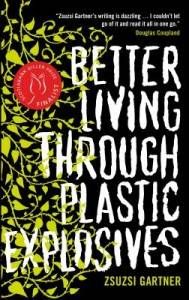 Better Living Through Plastic Explosives by Zsuzsi Gartner
Better Living Through Plastic Explosives by Zsuzsi Gartner
This is the best collection of short stories I’ve read in a long time; it’s fast-paced, dripping with irony, and very close to the bone in its meditations on suburban life, middle age, and a particular brand of West Coast identity seeking. I spent a lot of time with this collection cringing inwardly at seeing myself in some of the most distasteful characters (and occasionally the loveable ones, too). If you love hypercontemporary fiction or you’ve been looking for a new master of the short fiction form, this is a collection to covet.
–Brenna Clarke Gray
_________________________
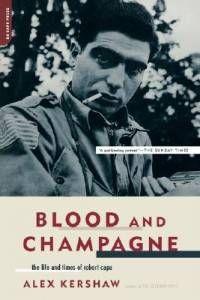 Blood and Champagne: The Life and Times of Robert Capa by Alex Kershaw
Blood and Champagne: The Life and Times of Robert Capa by Alex Kershaw
The quick, anecdote-rich pace of this biography may not fully capture the legacy of the renowned combat photographer, but something tells me that Capa himself would have appreciated its quicksilver quality. It’s far from exhaustive, but there are plenty of well-chosen details, such as Capa’s daydreaming childhood when he was “always walking into a lamp-post because he was talking too hard” and his memory of miraculously getting back aboard a landing craft during the Omaha Beach landing, when a nearby soldier exploded in a surreal blur of gore and feathers. Even in the midst of mayhem, he seemed to find black humor, such as his personal rule of always carrying extra underwear during parachute landings and how “the really terrible thing was changing your pants under fire.” If this could be an enhanced ebook, I would love to hear his voice—the famous raconteur telling a story in his “Capa-ese” mix of Hungarian, English, French, and more.
–Jennifer Paull
_________________________
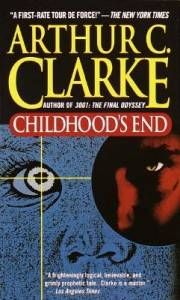 Childhood’s End by Arthur C. Clarke
Childhood’s End by Arthur C. Clarke
Just some good old-fashioned speculative fiction to f—with your mind in the most fun way a mind can be f—ed with.
–Kit Steinkellner
_________________________
I’ve taken to pitching Dare Me as the Great Gatsby of cheerleader novels, transporting the dueling egos and simmering private judgments of West Egg to a modern suburban high school. But Nick Carraway, hell, any of those bootleggers, would’ve been eaten alive within the first six pages. Had Abbott composed this savage tale in the third person, the only reasonable candidate to narrate the audiobook would’ve been wildlife documentarian Sir. David Attenborough. Such is the ferocity and aggression roiling just beneath the surface, any third party would want to observe all the headbutting and marrow-slurping from the safety of the reeds. Instead, Abbott revels in the first person account of varsity cheerleader Addy Hanlon, the increasingly reluctant lieutenant to her best friend, the cruel and charismatic Beth Cassidy. No lamb herself, Addy coolly chronicles one grim season when a willful young coach traipsed onto Beth’s territory and neither bowed their head. They say you should only tangle with first person if there’s very good reason. Megan Abbott always has plenty.
–Paul Montgomery
_________________________
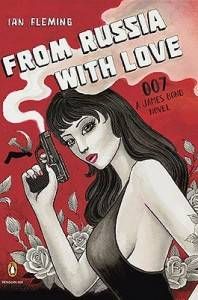 From Russia With Love by Ian Fleming
From Russia With Love by Ian Fleming
My favorite of Fleming’s Bond novels and the most unusual. We spend the first few dozen pages getting to know a badass Soviet hitman and then he disappears for a hundred pages. Then we get to know a Russian double-agent and learn about her plot to bring Bond down, and then SHE leaves the story for a while. Bond himself doesn’t even appear until well into the book. The reader knows the basic outline of the scam SMERSH is trying to run on Bond, but not how it is going to play out our who we are supposed to trust. Throw in a ride on the Orient Express and some fisticuffs in Istanbul, and you’ve got just a great spy/thriller joyride.
–Jeff O’Neal
________________________
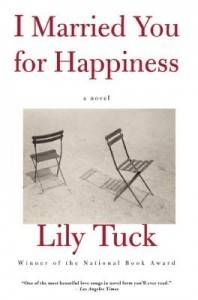 I Married You for Happiness by Lily Tuck
I Married You for Happiness by Lily Tuck
When her husband Philip dies at home one evening, Nina stays up through the night remembering their decades of life together. She roams through the house, returning repeatedly to the bedside, where she takes Philip’s hand and tells herself their story. She recalls their first meeting in Paris, the early years of their marriage, the indiscretions she hopes he never knew about. She thinks about their daughter, now grown and living miles away, who won’t know her father is gone until morning. She remembers love made, trips taken, arguments fought, meals eaten, and the lifelong effort to see the world through each other’s eyes (she is an artist, he a mathematician).
“Always, in her mind, she and Philip are in bed. Or they are eating.”
In fewer than 200 pages, Tuck captures both the intimacy of lives shared and the way that, as Rilke said, “even between the closest people infinite distances exist.” I Married You for Happiness is the truest, most honest depiction of marriage I’ve read in a long time, maybe ever. Tuck takes no missteps and makes every carefully chosen word count. I can’t recommend this book enough.
–Rebecca Joines Schinsky
_________________________
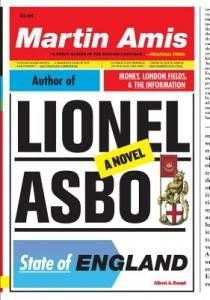 Lionel Asbo: State of England by Martin Amis
Lionel Asbo: State of England by Martin Amis
When we’re introduced to Lionel Asbo in Amis’ riotously funny new novel, he’s a 21-year-old psychopath and career criminal. (Think a young Vinnie Jones.) He spends his time dealing in stolen goods, raising pitbulls on a diet of Tabasco and steak, and living with his 15-year-old nephew, Des, who was orphaned when Lionel’s sister died three years earlier. Des, unlike his uncle, is a polite, mild-mannered kid. (Though on the first page, we learn something about Des that is less-than-normal. Okay, it’s horrifying, really.) As Lionel circles through bouts of violence and incarceration, something REALLY crazy happens – he wins millions in the lottery. Will money soften a hardened thug? This send-up of celebrity is fan-freaking-tastic.
–Liberty Hardy
_________________________
It’s been ten years since I read Zadie Smith’s precocious debut, White Teeth, a book that I enjoyed but that left me with the nagging feeling it could do with a damn good edit. No such qualms with her third novel, On Beauty. Set in and around the worlds of American and British academia, Smith nails the willfully obtuse language and petty jealousies that litter their gilded halls. In her fictional Wellington College, the smartest kids in the class are simultaneously the dumbest, those that can spend decades and millions of syllables on an exposé of Rembrandt’s mediocrity are also the ones that can’t say ‘sorry’ and ‘love,’ the simplest and most powerful of words.
–Edd McCracken
_________________________
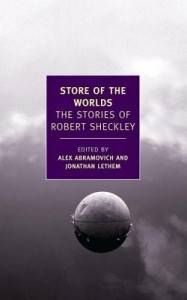 Store of the Worlds by Robert Sheckley
Store of the Worlds by Robert Sheckley
The Second New York Review Of Books publication I’ve chosen in as many months. Sometimes I think I tout them too much over here, but they’re really earning the praise. For all of you unfamiliar, Sheckley is a sci-fi short story writer whose heyday was in the amazing science fiction magazines of the 1950s. He’s probably the best American sci-fi short story writer ever. One of my favorites in the collection is a piece called “Specialist.” I’m not going to spoil it for you, just go out and read it yourself, ASAP.
–Scott Beauchamp
_________________________
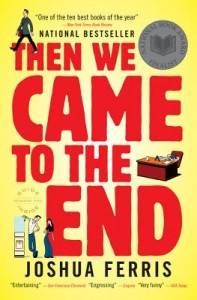 Then We Came to the End by Joshua Ferris
Then We Came to the End by Joshua Ferris
It’s like if the movie Office Space had heartbreaking moments scattered throughout the humor. And was also a book.
–Amanda Nelson
_________________________
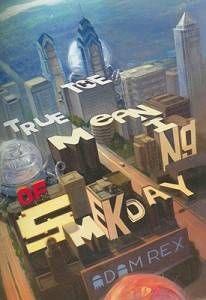 The True Meaning of Smekday by Adam Rex
The True Meaning of Smekday by Adam Rex
People have been telling me to read this book since it first came out in 2009 — I should have listened to them much sooner. 10-year-old Gratuity Tucci (known to her friends as Tip) is on a mission to get her mom back from the Boov, an alien race that has invaded Earth. The Boov are equipped with scary guns, but are also a little ridiculous (and a lot hilarious). With the help of a friendly Boov named J.Lo, Gratuity ends up going on an adventure that will change the course of history — as explained in her essay, The True Meaning of Smekday. Theoretically for kids aged 8 to 12, but definitely also for grown-ups. Unconvinced? GO WATCH THIS VIDEO IMMEDIATELY.
–Jenn Northington
_________________________
Your turn, readers. What’s the best book you read this month?




